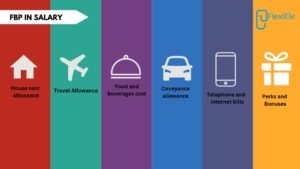
A Flexible Benefits Plan (FBI) is the salary component where employees can modify their CTC (cost to company structure) including medical expenses and conveyance. Companies in India are adapting to the ever-changing landscape of modern business and with them employees are also redesigning their salary structure. CTC contains all salary structure elements, but the flexible benefits plan’s major objective is to cover: HRA, Medical Allowance, Food Allowance, LTA, and Telephone Bills. Now the employee has the freedom to choose any element from the flexible benefit plan.
Benefits of FBP
Now let’s discuss what are the benefits of the flexible benefits plans in salary which can be avail by employees who are creating their salary structure:
- Emphasizing the benefits.
- Higher employee satisfaction leads to more productivity.
- Creating a transparent organization
- Effective recruitment
Unveiling the secrets of FBP
While deciding on the maximum allowance of FBP both the employee and HR are part of it. The Flexible Benefits Plan is always announced before the start of the financial year. These are the following secrets of the Flexible Benefits Plan:
- Policy-based on quality: The employee has the right to choose the base value of the component and the admin decides on the quantities required. For example, if a company allows an amount of Rs. 1000 for telephone bills and the employee uses two phones. There the company has to pay Rs. 2000 as a Telephone Bill allowance.
- Opt-In Component Policy: The employers of the companies always allocate a fixed budget for the Flexible Benefits Plan. Employees will receive the amount that has been fixed for the Flexible Benefits Plan they are not allowed to modify that.
- Mutual Exclusion: Under the policy, the company uses mutually exclusive components. For example, If the employee chooses a travel allowance, they won’t receive any money towards a vehicle they use for work.
- Dependent Policy: When the employer defines components as mutually exclusive, it doesn’t necessarily mean dependence. For example, if any organization declares travel allowance and fuel allowance as dependent elements. If an employee qualifies for fuel allowance then they can claim under dependent allowance.
How does FBP work in CTC?
Cost to Company (CTC) refers to the total annual compensation an employer spends on an employee. This includes the employee’s gross salary (base pay before taxes and deductions) and the value of all benefits provided. Common benefits factored into CTC can be allowances (e.g., housing, travel, medical), employer contributions to social security or retirement plans, and bonuses.
If an organization wants they can declare the housing allowance, travel allowance, and medical allowance into FBP by enabling employees to choose the allowance they need.
Limitations for Flexible Benefit Plan in Salary
- Limited Probability Information: These plans do not offer flexibility because if you choose to leave your previous company then the plan cannot be transferred.
- Chances of Losing Money: Certain flex plans don’t allow the employee to save their money. Most of the time they lose money.
How FlexiEle could simplify the FBM Management?
FlexiEle Payroll is a smart and powerful cloud-based payroll system designed to automate all payroll activities. Using the software you can customize and add different salaries required for your earnings.
FBP Management will be added to your earning components just by a click and you will be able to create a flexible benefit plan for your organization. With the help of FlexiEle’s payroll software, you can enforce a maximum limit for your employees for FBP selection.
FlexiEle’s payroll software comes with the elaborated ESS Management or employee self-service portal where the employee will be able to opt for the FBP plan according to their choice.
Through ESS, individuals can view the total allocated amount for each component and potentially submit reimbursement requests for work-related expenses they’ve incurred, up to the allocated limit.
Also read:

